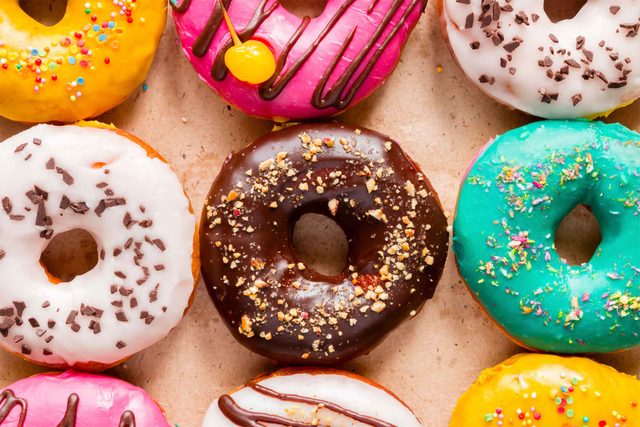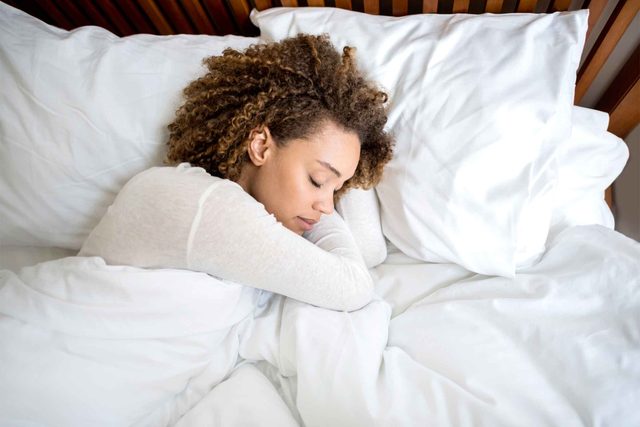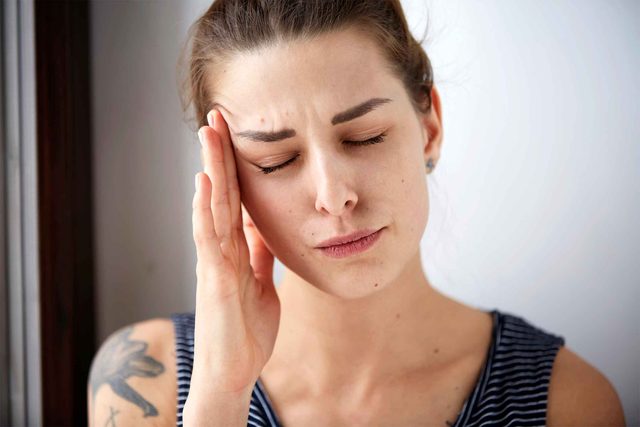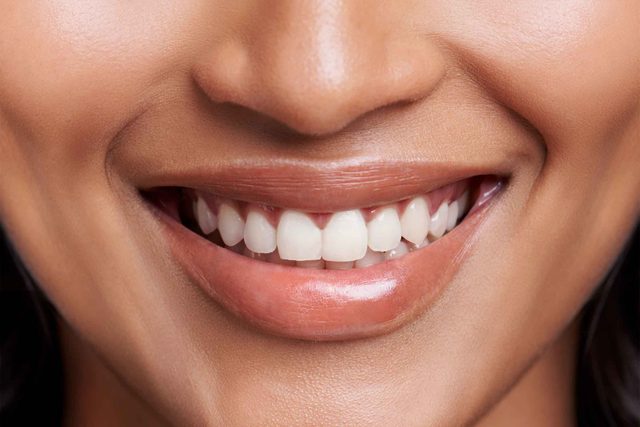
You could lose weight
Your regular Starbucks run could be doing a number on your waistline; quitting coffee could save you money as well as calories. Research at Duke University shows that daily consumption of caffeine in coffee, tea, or soft drinks increased participants’ daily sugar levels by nearly 10 percent, boosting their risk of cardiovascular disease and obesity. Even if you avoid the loads of sugars and fats dumped in a latte, just adding cream and sugar to your homebrewed coffee could quickly skyrocket to over 200 calories per serving, according to Prevention. Alternatively, cutting out your favorite sugar-packed caffeine drink completely could trim hundreds of calories from your diet in a single day.

You could gain weight
Have you ever experienced strange cravings if you happen to forgo your caffeine dose one morning? Since coffee can temporarily suppress your appetite, you might find yourself reaching for fat- or sugar-loaded replacements more often than usual once you stop drinking your daily cup of joe. This is especially true when your caffeine withdrawal kicks in and your body starts searching for a quick sugar fix, boosting your blood sugar and daily caloric consumption. Luckily, there are some benefits to coffee.

You could sleep better
Even though you’ll feel tired as your body adjusts to the lack of stimulants it’s so used to, in the long run, you could get a better night’s sleep once you start living a caffeine-free lifestyle, especially if you were used to drinking coffee in the afternoon or evening. A study published in the Journal of Clinical Sleep Medicine found that caffeine intake even six hours before bedtime can disrupt a person’s sleep cycle that night. According to science, this is the right time of day to drink your coffee.

You could have more frequent headaches
Every coffee lover recognizes the telltale signs of the dreaded caffeine headache that hits when your body doesn’t get its morning jolt. When you stop drinking coffee, you deprive your body of adrenaline and dopamine, hormones that act as natural stimulants and keep you awake. Instead, a flood of adenosine—a hormone responsible for rest and tiredness—rushes to your head, causing a change to your brain chemistry that results in a headache. To minimize the pain, don’t quit cold turkey, Wesley Delbridge, RD, a spokesperson for the Academy of Nutrition and Dietetics, told Prevention. Instead, cut your intake just a little bit every two or three days. Eliminating a half cup of coffee, replacing coffee with tea, or even mixing normal coffee with decaf can help to avoid withdrawal symptoms, and you’ll be well on your way to weaning off your caffeine dependency. Here’s the one ingredient you should add to your coffee to boost your metabolism.

You could feel sick (but not for long)
Headaches aren’t the only painful symptom of quitting coffee. Those who stop consuming coffee have reported side effects like depression, anxiety, dizziness, flu-like symptoms, insomnia, irritability, mood swings, and sluggishness. Here’s the good news: you won’t feel this way forever. Experts say that most of the physical symptoms of caffeine withdrawal will pass after the first two days, while the rest of the side effects won’t last beyond a week or two. Here’s how your morning coffee could be sabotaging your day.

You could have a healthier smile
Coffee is highly acidic, which means it erodes your tooth enamel and stains your teeth with every sip. Cut the caffeine and you’ll protect your teeth from a lifetime of erosion, leading to a whiter (and more confident!) smile.

You could miss out on antioxidants
Coffee is the number-one source of antioxidants in the average American’s diet, according to research from the University of Scranton. Numerous studies have found that drinking more than three cups of coffee per day could decrease your risk of everything from breast cancer to Parkinson’s, as well as increase bone health. Unfortunately, it goes without saying that if you’re cutting back on coffee, you’ll be losing the health benefits, too. Thankfully, it’s not hard to make up for your regular coffee intake by replacing it with antioxidant-rich tea, fruits, and veggies. Check out these unusual beauty uses for coffee grinds.

You could have difficulty concentrating
Quitting coffee can make you feel fatigued and irritable, which can contribute to a lack of concentration, according to nutrition blogger Justin Caba. Caba told MedicalDaily that as he experienced caffeine withdrawal after cutting back on coffee, his productivity at work severely decreased. Blame it on the lack of stimulants you get from a dose of coffee, as well as the increase in adenosine, that pesky hormone that makes you feel tired. To counteract the loss of concentration, try chewing minty gum to keep your brain alert and on task. When participants did so in a study published in the British Journal of Psychology, they had quicker reaction times and more accurate results on their tasks, especially toward the end of the session. Plus, after just a week without caffeine, you’ll find that your productivity has increased because you no longer experience the inevitable afternoon crash after a morning cup of coffee. Here are 7 signs you’re drinking too much coffee.

You could become constipated
Caffeine keeps things moving through your intestines, which is why you may feel backed up when you stop drinking your usual cup of java. But never fear, there are plenty of other ways to keep your bathroom trips regular: eat lots of fiber (found in whole grains, vegetables, and beans) drink plenty of water, and exercise regularly. Your digestive system will thank you. Coffee or tea: Here’s which one is healthier.

You could feel calmer
If too much caffeine has ever left you squirming in your chair or jiggling your leg, it’s time to say goodbye to your double espresso shots. Since caffeine is a stimulant, it naturally raises levels of adrenaline and stress hormones in your body. If you find you just can’t quit your coffee fix, here’s how to make your coffee habit healthier.
